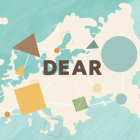New Forests in Town
News details
1Planet4All - Three schools planted “forest classrooms” and inspired 10 more across Lisbon. The toolkit “Tiny Forests for Giant Lessons” helps to teach science and more ... in the woods.

The FCULresta forest plantation, ©University of Lisboa, 2021
The Miyawaki method - densely planting native species to simulate natural layers - can create new urban forests in a record time of 20-30 years, whereas it normally takes twice as long. “1Planet4All” brought together scientists and climate activists, including 150 young people, to plant tiny forests, called FCULresta, through this method in Portugal. With the help of local communities and municipalities, there are now 13 more tiny forests, including in Almada and Sintra, and this number is growing.
One of them started growing at the University of Lisbon in March 2021. Unused land before, the forest was explored by over 81 000 visitors in the first three and half years (as per GoogleMaps). Highly resilient and sustainable, the tiny forest promotes biodiversity and consumes much less water than lawns or gardens of small plants.

Unused land (left) converted into the mini forest “FCULresta” (right), ©University of Lisboa, 2021
Along with the tiny forests, “1Planet4All” produced “Tiny Forests for Giant Lessons”. This guide (in EN and PT) helps schools create their own tiny forest classrooms, where students can learn Biology, Ecology, Mathematics, Portuguese, Philosophy and more in the woods - with the words and wisdom of nature. To promote the use of the toolkit, the well established Portuguese media outlet Publico published the main steps to create a tiny forest - reaching thousands more.
More info, sights & sounds:
-
Infographic of tiny forests’ contribution to the SDGs
For an overview of DEAR Programme impact, read other Stories of Change.


Log in with your EU Login account to post or comment on the platform.